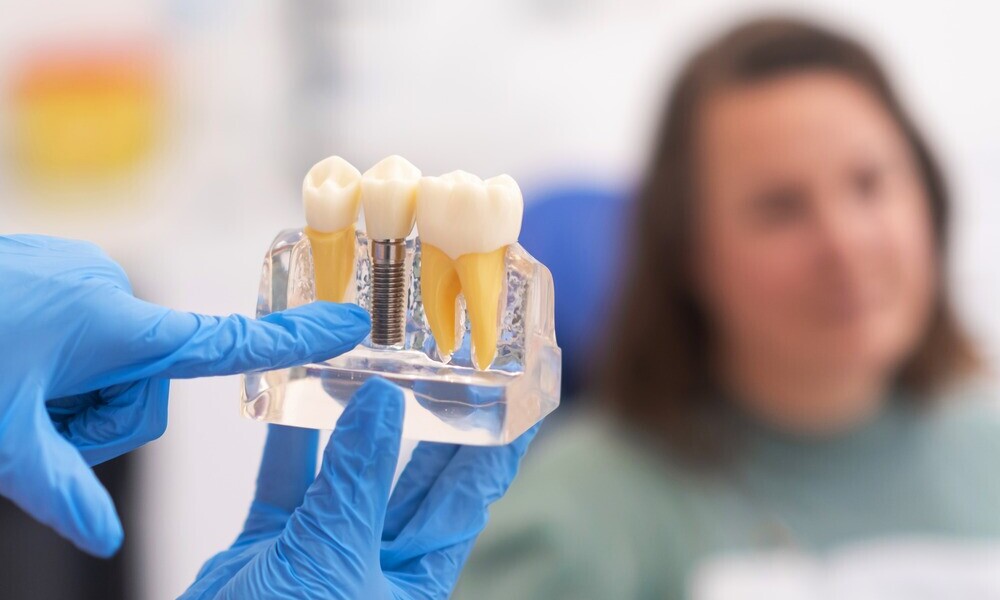A beautiful smile can enhance your overall appearance and boost your confidence. However, missing teeth can significantly impact both your oral health and self-esteem. Fortunately, dental implants have emerged as a reliable and long-lasting solution to restore your smile. In this comprehensive guide, we will demystify dental implants, exploring their benefits, the procedure, and maintenance, ultimately equipping you with the knowledge you need to transform your smile.
Understanding Dental Implants:
Dental implants are artificial tooth roots made of biocompatible materials like titanium that fuse with your jawbone through a process called osseointegration. This integration creates a strong foundation for the replacement tooth or crown, mimicking the structure and function of a natural tooth.
The Benefits of Dental Implants:
1. Aesthetics: Dental implants provide a natural-looking appearance, blending seamlessly with the rest of your smile. They are designed to match the color, shape, and size of your existing teeth.
2. Durability: Unlike traditional dentures or bridges, dental implants are a permanent solution. With proper care, implants can last a lifetime, making them a cost-effective choice in the long run.
3. Improved Oral Health: Dental implants prevent bone loss and promote jawbone growth by stimulating the surrounding tissues. Additionally, they do not require the alteration of adjacent healthy teeth, preserving your overall oral health.
The Dental Implant Procedure:
1. Evaluation: During the initial consultation, your dentist will assess your oral health, jawbone density, and discuss your expectations. X-rays and scans may be taken to determine the best treatment plan.
2. Implant Placement: In the next stage, a dental surgeon will place the implant into your jawbone surgically. This requires a minor incision and careful placement of the implant. Local anesthesia or sedation may be used to ensure your comfort.
3. Osseointegration: After the implant is placed, your jawbone will need time to heal and fuse with the implant. This process typically takes several months, during which a temporary crown or denture may be worn.
4. Restoration: Once osseointegration is complete, your dentist will attach the abutment, a connector that supports the replacement tooth. Finally, a custom-made crown will be affixed to the abutment, completing the dental implant process.
Maintaining Dental Implants:
Maintaining good oral hygiene is crucial to the long-term success of your dental implants. Here are some essential tips for care:
1. Brush and floss regularly: Brush your teeth twice a day, using a soft-bristled toothbrush, and floss daily to remove plaque and debris.
2. Attend regular dental check-ups: Visit your dentist at least twice a year to ensure the health of your dental implants and overall oral health.
3. Avoid harmful habits: Avoid chewing on hard objects like pens or ice, as this can damage your implants. Additionally, quit smoking, as it can hinder the healing process.
4. Protect your implants: If you participate in contact sports or grind your teeth at night, consider wearing a mouthguard or a nightguard to protect your dental implants.
Dental implants offer a reliable and effective solution for replacing missing teeth and restoring your smile. Understanding the benefits, procedure, and maintenance of dental implants is essential in demystifying this transformative dental treatment. By exploring this comprehensive guide, you are now equipped with the knowledge to make an informed decision about your oral health. Don’t let missing teeth hold you back; dental implants can help you regain your confidence and achieve a stunning smile.


0 Comments